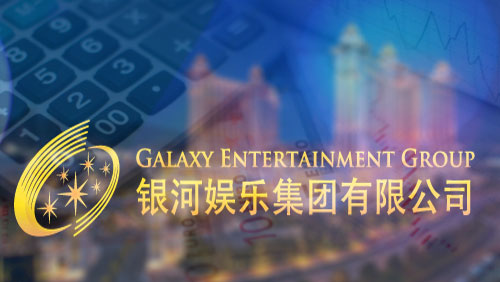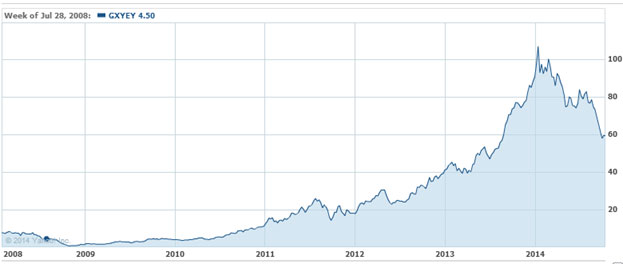 The Chinese housing decline is accelerating even faster now. From sliding 0.47% in June after falling .15% in May from month to month, we are now up to a 1.1% decline rate from July to August. What’s worse, seasonally, we’re talking about a 12.4% decline from last August to this August, according to the Financial Times. Sellers are now resorting to gimmicks like free chickens in order to get people to buy. (It would have to be a lot of chickens I think.)
The Chinese housing decline is accelerating even faster now. From sliding 0.47% in June after falling .15% in May from month to month, we are now up to a 1.1% decline rate from July to August. What’s worse, seasonally, we’re talking about a 12.4% decline from last August to this August, according to the Financial Times. Sellers are now resorting to gimmicks like free chickens in order to get people to buy. (It would have to be a lot of chickens I think.)
The money supply in the US continues to stagnate badly. One month ago we hit the 20-week stagnancy warning. We are now into week 24 with no growth. The 1-week M2 average has gone from $11.353T on April 14 to $11.407T as of the latest report for September 29. We are now at a .47% growth rate for 24 weeks, which translates into about an annual 1% growth rate. Monetarily, this is a September 2008 situation. That does not mean the same thing will happen this time, but we are at a higher risk of it.
Since we hit the 20-week mark, the S&P is down 6.3%, and the VIX has doubled. For those of you who took short positions in Macau at the 20-week warning mark last month, hold on to them until at least Thursday. If M2 stays below $11.4T for the week, keep them and add to them. If it pushes above $11.5T, cover. Anything in between, it’s a judgment call, but in general, the higher the number is on Thursday, the more you should cover shorts and vice versa. For those who went short when I called a top in Macau on July 29th, take some profits and go on vacation.
That brings us to Galaxy Entertainment (GXYEY). Much of what’s going on in that company is reminiscent of Chinese government economic data reporting. Though I won’t say that Galaxy is actually lying about any of its numbers as I have no evidence of that, the way data is presented by them raises more than an eyebrow. Calling it sugar-coated doesn’t go far enough. It’s more like it’s stevia-coated. Why stevia? Because stevia is 300x sweeter than sugar and has a bitter aftertaste.
Galaxy’s report talks about $1.3B in charity operations, environmental projects and sustainability measures. My favorite one is its purchase of a “food waste decomposing machine which, in the first half of the year, produced over 1,500 kg of compost for planting.” That’s nice. There’s also special dividends to shareholders, incredibly positive language all throughout, a repeated whitewashing of the “soft Chinese economy” accounting for any perceived weakness while equating it with the “FIFA World Cup distraction” as if they were both transient phenomena that should not cause any alarm to stockholders…it’s all too good to be true, and belies the fact that Galaxy’s stock is down 45% from its highs at the beginning of the year. Ouch.

Despite losing 45% of its market cap in 8 months, everything on the surface looks stellar at Galaxy, pun intended. In September, for the first time ever, Galaxy grabbed the most gaming revenue market share at 22.9%. The problem is, it got 22.9% of a shrinking pie. According to Credit Suisse, VIP revenue will drop by another 25-30% when the September numbers are out. In the face of that, VIP revenue for Galaxy grew by 3% according to its half-year report. If that’s true it’s a very good sign of operating and management genius, but there’s still the problem of a low tide sinking all ships. With the double whammy of zero money growth in the US and the housing situation in China, Galaxy’s stock won’t escape the continued decline ahead.
Exacerbating this is the fact that Galaxy also has a sizeable portion of its company directly involved in construction materials, generating over $1B in revenue for the group in 1H2014, not a huge portion of its revenues but a significant one. Look for this number to fall hard by the end of the year. On top of all that are the Hong Kong democracy protests which have restarted. Who knows how they’ll affect the situation, but as a rule of thumb, it’s generally bad for business when a bunch of people block traffic en masse for weeks.
What really raises an eyebrow in its half-year report though, was this (emphasis mine):
With the major infrastructure projects in Hong Kong entering their construction peaks, the Government’s 2014-2015 budget announced in February 2014, provided further stimulus in capital works expenditure to over $70 billion for each of the next few years, far exceeding the average annual expenditure of about $40 billion in the past five years. CMD’s strategically located aggregates, ready-mixed concrete and asphalt operations are well positioned to benefit from this increasing demand.
Oh boy. Government stimulus nearly doubling for housing projects. Trying to stimulate demand that isn’t there by increasing supply again. Increasing supply in the face of falling demand, go back to economics 101 and you’ll remember that increasing supply lowers price. Decreasing demand lowers price, too. Put them together and you really lower price. And price is already falling fast. Galaxy is going to take this government Renminbi, build a bunch of stuff, and find no buyers for it except at much lower prices.
But wait, there’s more. Phase 2 of Galaxy Macau is expected to complete in mid-2015, doubling the capacity of the existing Galaxy Macau resort to one million square meters, and that’s just one of its expansion projects. Altogether, its expansion budget amounts to $60B HK. All at a time when the softening Chinese economy is not transient, certainly not like the invasion of the FIFA World Cup. This is all very bad timing, but just reading the report without mulling over what’s stewing in the background and you get the sense that Galaxy is a rip-roaring maddening success. It looks that way now, its balance sheet is mammoth strong, its debt minuscule, its bottom line spectacular, and Lui Che Woo continues to conduct a beautiful orchestra of charity, environmental responsibility, composting machines, a booming construction business benefiting from government stimulus, and a $60B casino expansion project on the deck of the Titanic.
Well, not quite the Titanic. Macau won’t sink never to rise again and Galaxy won’t die. It will rise again, but we’re not done with the sinking part yet. Despite the jubilant triumphalist tone of its official report, the market doesn’t seem to be buying it anyway. Expect Galaxy’s fall to continue.